Mentorship, the Essential Element to Nurture Community
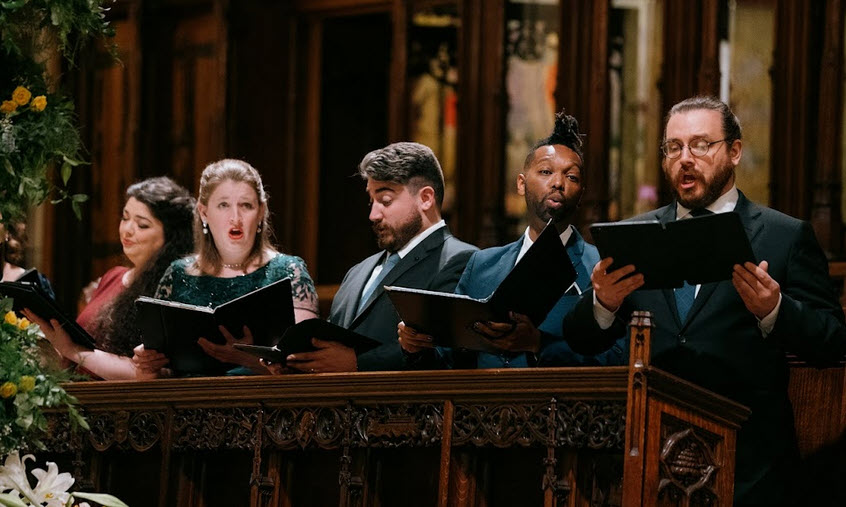
Deciding to become an early-music singer wasn’t easy. I was passionate about music in high school, but since I was from a small town in California it seemed inconceivable that I would study music and become a professional musician. I dodged a list of career expectations set by my parents and, instead, dove into music studies under the guise that I would become a choral conductor––a more digestible position in my parents’ minds. When I arrived at college, I discovered that the choral conducting program was only open to graduate students and the faculty member in charge explicitly preferred men for those spots. In this roundabout way, I found myself where I wanted to be: singing.
My four years as an undergraduate were challenging because my voice didn’t fit the mold for traditional opera. A professor took me aside and convinced me to join his early-music choir, and I spent the next several years falling in love with Renaissance polyphony while simultaneously navigating the stress of this professor’s constant sexual harassment.
Just after graduating, I was in a place of despair and needed guidance.
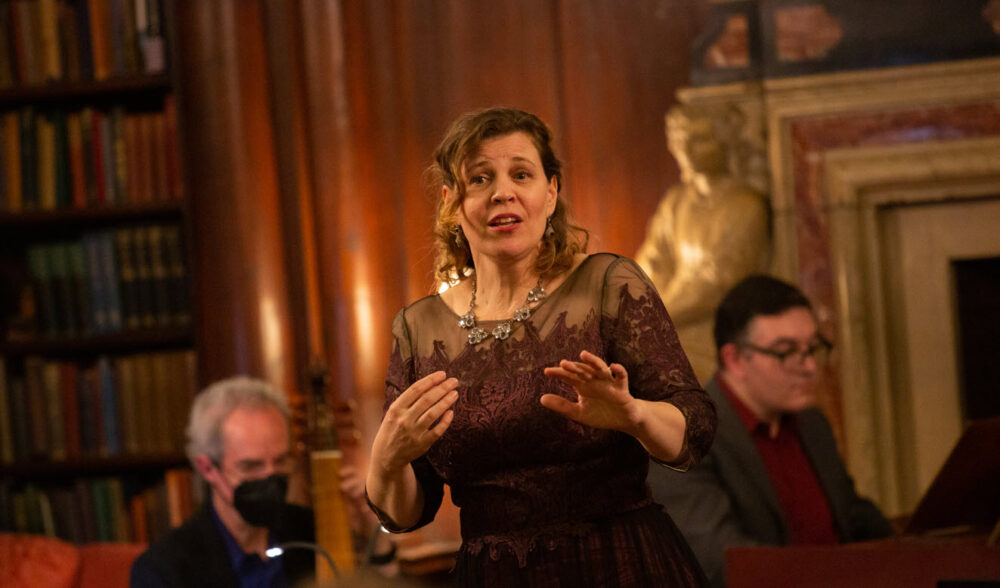
I was especially grateful to meet Lyle Nordstrom during a summer course at the Vancouver Early Music Festival. He convinced me to add a year to my undergraduate studies at a program he was newly creating outside of Atlanta. During that year, he helped me see that there is a place for me in early music, and I will be forever grateful.
Over 25 years later, I’ve spent the majority of my career in New York City as a freelance musician. I built TENET Vocal Artists, performing a series in New York and offering opportunities for fellow artists to thrive.
Receiving early guidance from Lyle was a gift. Only later did I realize how essential the work of mentoring is to our field. Our future relies on cultivating performers in an ever-changing world.
In addition to the usual struggles of starting a career in early music, the impact of COVID lockdowns and isolation has put young performances in uncommonly difficult situations. In response, I decided to create a program as part of our annual activities—Talks with TENET—that included what we’ve heard over the years about the struggle to get into young artist programs and the cost to attend. (When I was starting out, I didn’t apply to these sorts of programs because I couldn’t afford them. Instead, I opted to go to early-music workshops, sometimes with work-study scholarships, so I could meet fellow students and professionals in the field. Each time I felt enriched and inspired.)
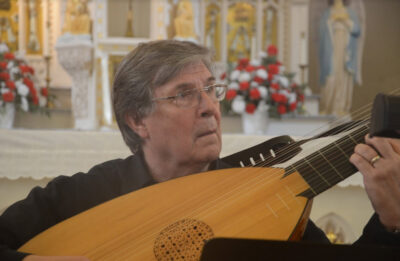
I saw the need for a program specifically targeted at emerging singers. I wanted to find a way for our mentors to have time to talk with mentees during the season so that advice and support could be offered as real-time career decisions were being made.
I also wanted this program to be free for those attending while fairly compensating the mentors. TENET believed so strongly in this dream that we invested a portion of our general operating budget to ensure the program’s initial year, with the hope of targeted fundraising in future years.
We didn’t hold auditions or require a formal application in an effort to avoid barriers and level the playing field, and we talked to everyone who expressed interest to determine if and how we could best help them. Some of our mentees were in school, others had graduated. Some knew a lot about early music, others knew very little.
‘No wrong answers’
I’m not sure anyone would call Zoom a welcoming space, but we did our best to create a sense of community using the platform. Danielle Buonaiuto, Program Director for Talks with TENET led the group’s opening sessions and introduced us to the concept of creating a “brave space,” which we define as “a space where participants feel comfortable learning, sharing, and growing, inclusive to all races, sexes, genders, abilities, immigration status, and lived experiences.”
“Brave spaces” was a new term for many of us. It beautifully encapsulated what is needed for everyone to feel open to hearing new ideas, comfortable expressing themselves and asking questions, and willing to share challenging or difficult past experiences. Danielle felt it was important to “create a space where there are no wrong answers, because the career pathways presented to us through our field can feel narrowly defined, when the truth is that there are as many ways to build a life as an artist as there are artists.”
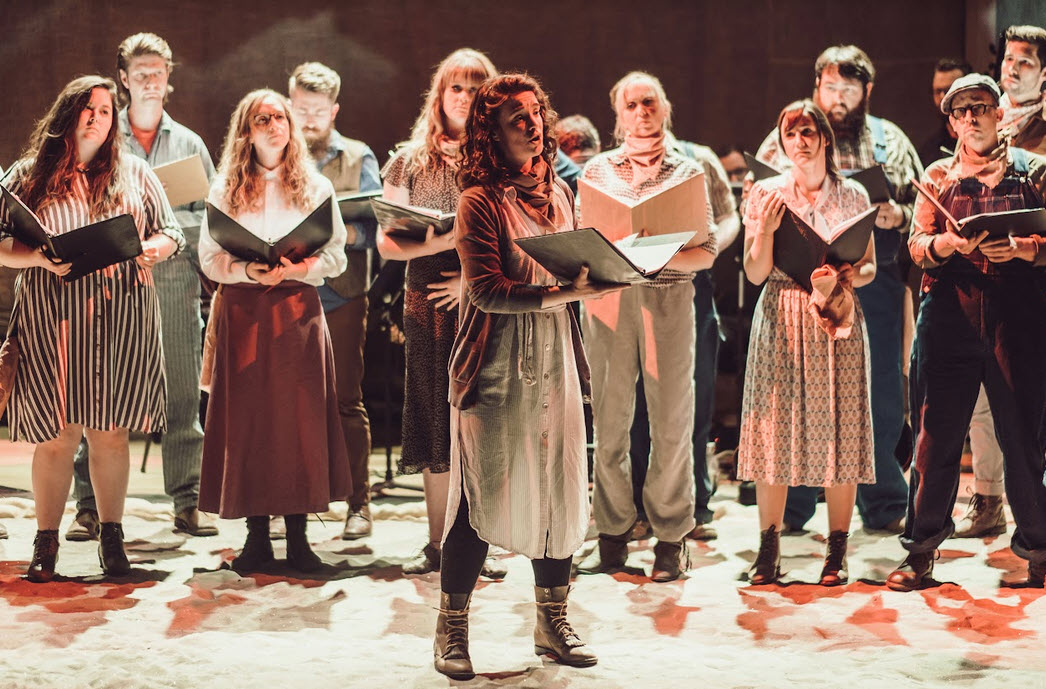
The subjectivity of the program participants—their values, priorities, and lived experiences—took a front-row seat in how we structured the program and shaped its content.
One of our first mentees was Erinn Sensenig, who joined the program last fall. Erinn moved to Brooklyn in August 2020 from Dallas, where she had taught voice and sung with professional ensembles. The pandemic shutdown, paired with a cross-country move, made for an awkward time to enter a new music scene with few opportunities and with organizations facing uncertainty. Erinn told us that “as a newcomer, there was the added mental block of facing what I knew would be a whole new level of singing excellence.”
But once she arrived in the New York area, she “foundered through a lot of career choice questions, wondering if this was a field I even wanted to pursue.”
Erinn’s group met weekly from September to December 2021. She says it was “reassuring to talk with other singers who were at similar stages of growth and career development, and who were asking similar questions as we all try to make a sustainable life doing what we love.”
Her progress report: “I am restarting what COVID slowed to a near halt, but I have the clearest sense ever of where I’m going and how I want to get there.”
For TENET, the most difficult part of creating the program was scheduling: our mentors have busy performance schedules, and our mentees have school and work conflicts. In contrast, putting together a list of discussion topics was easy: career and press kit development, entrepreneurship, skill building, networking, and more.
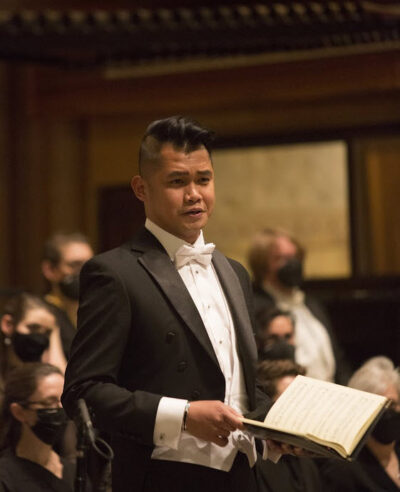
Mentors were given a lot of leeway to be creative and cover topics in a way that worked best for their group. Bass-baritone Enrico Lagasca offered a well-spring of ideas, and his approach was generous and warm: “One of the great things about mentoring is that we aren’t here to talk about our greatest achievements.”
Mezzo-soprano Elisa Sutherland was another of TENET’s mentors this season. She noted an important observation among mentors: “Although I’m further along in my career than some of the mentees, I also have goals and aspirations that I’m working towards. At the time I questioned what help or advice I could really provide when I was struggling with some of the same issues myself! I discovered that the simple act of sharing my own experiences was incredibly helpful to mentees—disappointments and successes. All of this made for honest and, I hope, helpful conversations with my mentees.”
‘I discovered that the simple act of sharing my own experiences was incredibly helpful to mentees—disappointments and successes.’
Once we did the careful work of pairing mentors and mentees together into cohorts, each mentor gathered with three to five mentees over the course of 10 weeks, and conversations flowed in many directions. Perhaps the most frequent questions touched on how to get hired: How can I reach ensemble leaders? How do I get an artist visa? What should I sing at an audition? Do I really need a website or videos of my singing?
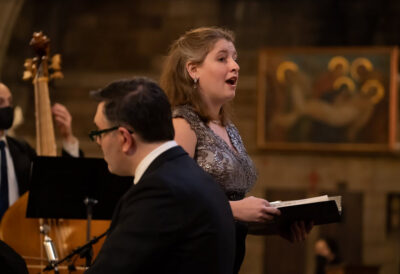
And the discussions took a deeper dive: Should I start an ensemble? How can I balance freelancing with starting a family? What should I do about an uncomfortable work situation? A lot of these topics are much larger than one conversation and require a deep level of trust. My hope was that with weeks of one-on-one contact, Talks with TENET would build these trusting relationships and home in on the difficult topics. Thankfully, they did. And promising to keep people’s stories confidential helped to make that possible.
Another of our mentors, bass-baritone soloist, chamber singer, and composer Jonathan Woody, expressed the important role mentors played in his own life. “For me, mentorship is an important part of the chain of knowledge that makes our work possible,” he explains. “I was able to pursue my professional goals as a musician because of the time and care that my teachers and mentors invested in me, and I feel that it’s my responsibility to pay that generosity forward and share the experience I’ve accumulated with others.
“I also learn from my mentees, who invariably have a different perspective and set of experiences than I, and who can help me recalibrate the ways my mind might have been closed off to new ways of thinking and working.”
‘I felt the mist lift’
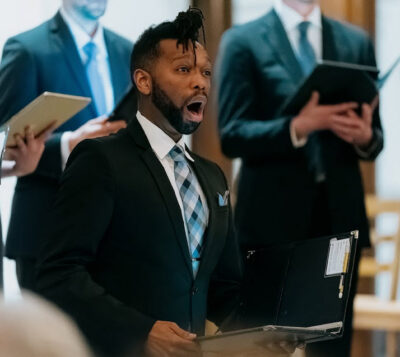
After our first year, we collectively agree that creating this program was a joy. Feedback from mentees showed us that they had a great overall experience and felt more connected to our broader early-music community. Erinn found that “through our conversations, I felt the mist lift on the path ahead for me…I connected with a larger network and gained a clearer sense of what gigs to audition for, how to market myself, and how to prepare musically.”
Mentee Filip Duda-Żurawiecki shared with me that “talking with you and my fellow mentees was a much needed ‘reset’ and exposed me to trajectories I hadn’t ever considered.” The feeling was mutual as noted by Jonathan Woody: “I’m grateful for the relationships I have now with each of the mentees, and I look forward to continuing to work with them as colleagues in the years to come.”
The field of early music has grown a great deal since I finished school and embarked on my career. I’ve seen and heard incredible performances, met so many people, and relished the opportunity to engage in an unusual profession with a wonderfully quirky collection of souls. It always makes for engaging conversation with those outside our field because we’ve strayed far away from the conventional path.
Before writing this article, I reached out to Lyle to talk about his role as a mentor to me and so many musicians over the years. When I asked him why he made such big investments in the lives of young musicians, he said, “I care about music and how it fits into people’s lives and what music can do for their soul as well as the happiness and beauty it can bring. The rewards of seeing students grow is amazing.”
I have learned from personal experience that choosing music as your profession comes with a great deal of sacrifice. There was one specific piece of advice Lyle gave me many years ago that has stuck with me, though, and it has helped me at crucial times along the way. He said “If you choose music, accept it and go full force. If you really love it, you will find a way to make it happen, and the rewards to your soul will be worth it.”
Soprano Jolle Greenleaf is one of today’s foremost figures in early music. An innovative impressaria, she begins her 14th season as artistic director of NYC-based TENET Vocal Artists in 2022-2023. www.tenet.nyc

